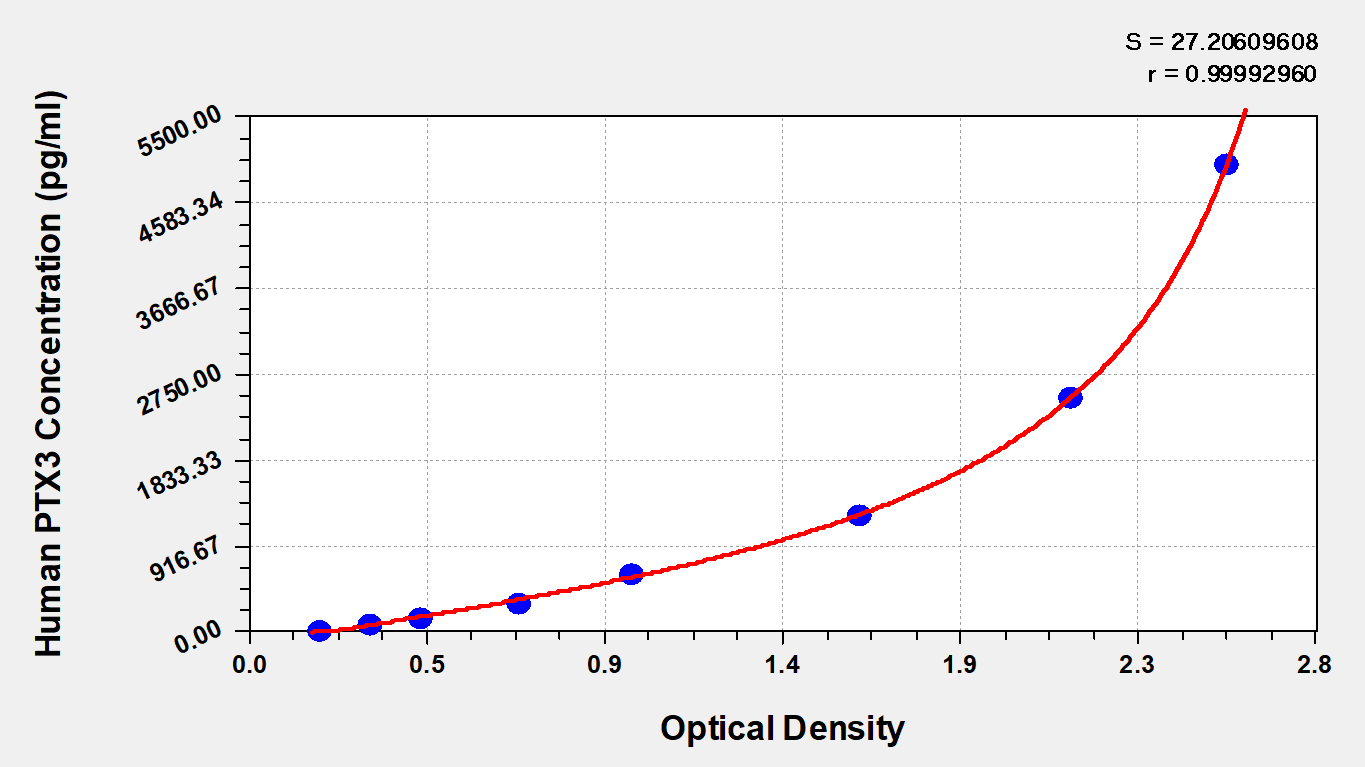Pentraxin 3 (PTX3) is a member of the pentraxin superfamily of acute-phase proteins that plays an important role in innate immunity and inflammatory responses. As a pentraxin-related gene rapidly induced by IL-1 beta, PTX3 is produced by various cell types including endothelial cells, macrophages, and neutrophils in response to inflammatory stimuli. This protein functions as a pattern recognition receptor, enabling pathogen recognition and complement activation while also participating in tissue repair and remodeling processes. PTX3 serves as an important biomarker for inflammatory conditions and has been widely studied in cardiovascular disease, sepsis, and autoimmune disorders.
The Human Pentraxin 3 (PTX3) ELISA Kit (CSB-E12926h) is designed for quantitative measurement of PTX3 in human samples. This sandwich-based assay accommodates serum, plasma, and tissue homogenates with a detection range of 78 pg/ml to 5000 pg/ml and sensitivity of 19.5 pg/ml. The assay requires 50-100 μl sample volume and can be completed within 1-5 hours. Detection occurs at 450 nm wavelength, providing researchers with a reliable tool for PTX3 quantification in Homo sapiens samples.
Application Examples
Note: The following application examples are drawn from a selection of publications citing this product. For additional applications, please refer to the full list of references in the "Citations" section.
This ELISA kit has been used in clinical research studies to measure pentraxin levels in human plasma and serum samples. The applications span inflammatory biomarker research and cardiovascular risk studies where pentraxin serves as an important acute-phase protein marker.
• Inflammatory biomarker research - Quantification of pentraxin levels in plasma samples from clinical studies investigating inflammatory responses and acute-phase protein expression
• Cardiovascular risk assessment - Measurement of pentraxin alongside lipid profiles and other inflammatory markers including C-reactive protein in serum samples to evaluate cardiovascular disease risk factors
• Clinical biomarker profiling - Integration with comprehensive metabolic panels measuring cholesterol, triglycerides, lipoproteins, and apolipoproteins for multi-parameter analysis of patient samples




